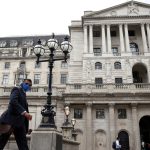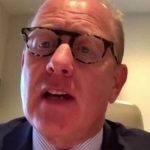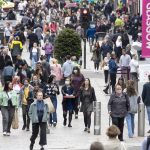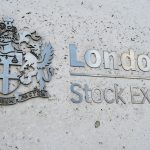The rate of price rises has dropped to 7.9% in the year up to June, according to the Office for National Statistics (ONS).
The consumer price index (CPI) measure of inflation shows prices are still rising, just at a slower pace than before, as the rate fell from 8.7% in the year to May.
Another measure of inflation, closely watched by the Bank of England when deciding whether to increase interest rates, also fell.
Be the first to get Breaking News
Install the Sky News app for free
Core inflation – the rate of price rises that excludes food and fuel – dropped to 6.9%. The rate had been increasing since January this year.
The majority of analysts now expected that the Bank will only increase the base interest rate to 5.25% early next month. Prior to the inflation announcement an increase to 5.5% was seen as the most likely outcome.
Also changed since Wednesday morning’s inflation data is the high the base interest rate might reach. It had been expected to top 6% but is now estimated to reach a high of 5.75%.
Interest rates have been hiked 13 times in a row in an effort to dampen economic activity, take money out of the economy by increasing savings, and bring inflation down to 2%.
Supermarket deals drive down cost of grocery inflation for fourth month in a row
Thousands of civil service posts to be cut and recruitment freeze at Ministry of Defence to fund pay rises
One in 20 adults ran out of food and couldn’t afford more, ONS data shows
A higher rate set by the Bank means more expensive borrowing and higher mortgage bills.
Economist had thought core inflation would remain stuck at the same level as the month before – 7.1% – and that CPI would only fall to 8.2%.
But falling petrol and diesel costs, and a slowing down in food price rises, led to the surprise drop.
The rate of food inflation fell to 17.3% in June from 18.3% in May.
Also falling was the cost of raw materials – they dropped 2.7% in price – the first time they’ve actually become cheaper since late 2020, the ONS said.
The price of goods leaving factories grew 0.1%, down from a rise of 2.7%.
Chancellor Jeremy Hunt said, “Inflation is falling and stands at its lowest level since last March; but we aren’t complacent and know that high prices are still a huge worry for families and businesses.
“The best and only way we can ease this pressure and get our economy growing again is by sticking to the plan to halve inflation this year.”






















